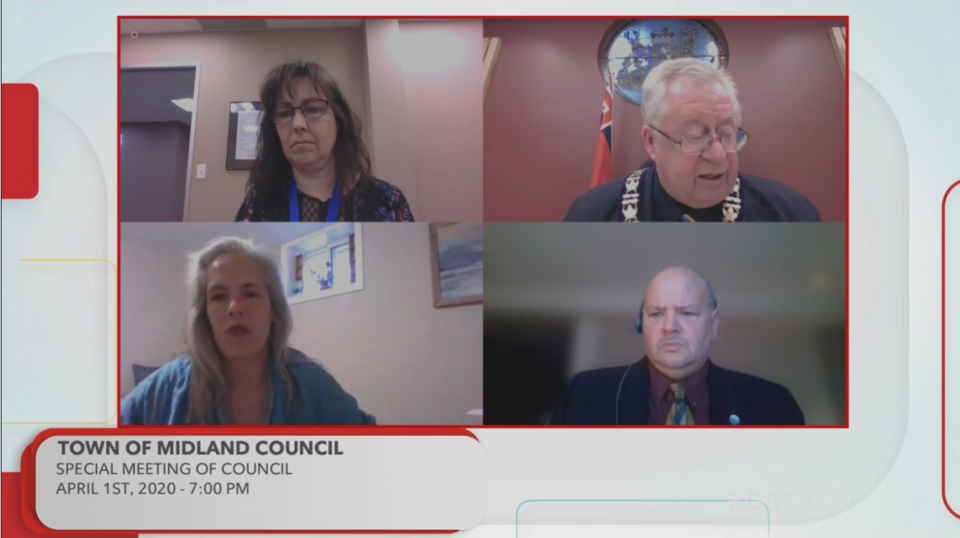Midland councillors have approved community relief measures for taxes and utilities.
During a virtual meeting Wednesday evening, council opted to defer the interim tax installment due April 20 to June 29. Interest on all utility accounts has also been waived until June 30 with interest applied after that date.
Council also approved a staff recommendation that all returned cheque fees on tax and utility payments be waived until June 30.
Town staff also recommended that council ask the County of Simcoe to defer until September 30 their levy requirements due June 30 while also asking the county to consider developing a short-term loan program for municipalities to assist them through the COVID-19 pandemic if/when required. Staff will report back next month with a further update and recommendations based on financial and economic conditions at that time.
The staff recommendations came from a webinar involving the Municipal Finance Officers Association, Municipal Tax Equity Consultants (Simcoe County consultants on property tax policy matters) and Ontario Municipal Tax and Revenue Association. The staff report stated the general advice provided was to deal with immediate tax due dates and cashflow related issues and to address longer-term issues once more information has been provided by other levels of government. Another factor to consider in this decision-making process is the longevity of the crisis as it is determined on an ongoing basis.
Property taxation and utility charges represent the bulk of revenues and cashflow sources for municipalities. These funds are used to operate and maintain essential services like policing, water & wastewater, roads and related activities (including winter control, transit, sidewalks, traffic signals, signs, etc.), as well as ensuring suppliers and employees are paid for the supplies and services they provide directly or indirectly to our residents.
The staff report also outlines how these waivers and deferrals would affect the town's cashflow.
If it were business as usual, the town would incur more than $2 mllion in operating costs, capital expenditures and statutory deduction remittances as well as about $550,000 in payroll. All of this adds up to a total of $3 million in expenses. This amount excludes about $3 million that are incurred through major construction payments, one-time annual payments, such as insurance and school board and county tax levy remittances.
The town has about $12.8 million immediately available to be used as temporary cashflow for the next three months with the projected outflow of cash slated at $9 million to $10 million without any additional government funding received.
The staff report further says that the town should be able to temporarily afford the deferral of the tax due date without needing to access its $10-million line of credit available through Scotiabank. Town administration will monitor any significant requests for payment that may arise, should it be necessary, and develop an appropriate strategy or solution to properly address at that time.
